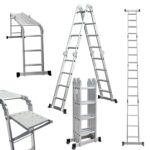The present highly competitive labor market demands organizations to focus strongly on securing and maintaining their best employees. Organizations consistently explore innovative approaches to establish workplaces which attract excellent candidates while sustaining their employment engagement and motivation. Employees must understand what makes their workplace special through the Employee Value Proposition (EVP) which presents unique workforce benefits according to the organization.
Modern workplace recruitment now requires more than salary and benefits packages alone. The leading organizations understand that a culture-based EVP creates a transformative impact on their business operations. The method dives deep into organizational values and mission alongside the workplace environment to create an employer of choice organization.
To take advantage of this power what steps must you follow? Analyzing employee value proposition strategy through cultural foundations creates better labor dynamics in your organization.
Understanding Employee Value Proposition (EVP)
A strong employee value proposition strategy attracts top talent by clearly communicating the unique benefits and experiences offered in the workplace. This approach enhances employee engagement, fosters retention, and builds a competitive employer brand.
Employee Value Proposition (EVP) represents something greater than its current popularity as a business trend. An organization expresses its individualized advantages along with core employee values to workers through its Employee Value Proposition program.
A successful EVP needs to show the key aspects which establish your organization as a preferred employer. Employees must receive more than pay because they want to see opportunities for professional advancement and they seek desirable workplace environments that provide harmony between work and personal life.
Analyzing EVP requires evaluation of practical perks along with successful matches between organizational values and staff expectations. This alignment fosters loyalty and engagement within your workforce.
Developing an effective EVP needs internal analysis as well as direct input from personnel who already work at the company. What do they value most? What motivates them to stay? Through question answering organizations create a meaningful story that appeals to new candidates as well as the current team.
The Importance of a Culture-Driven EVP
Every organization needs a culture-driven Employee Value Proposition (EVP) system to keep its best employees. The approach extends further than wage packages and employee benefits because it investigates the specific workplace environment which forms employee experiences.
Worker engagement increases when people connect their values with those of their organization. The connection guarantees employee devotion along with team identification. Employees who connect with corporate culture create better innovation together with increased workplace productivity.
Moreover, in today’s competitive market, a strong culture-driven EVP differentiates your business from others. The values of candidates and organization match so they look for employment in such environments.
Organizational alignment results in a major improvement of your employer brand. The creation of trust extends beyond internal workers because it produces reliability that potential hires also perceive. Your workplace culture stories will have a deep impact on potential workforce members who seek meaningful employment.
Elements of a Culture-Driven EVP
A culture-driven EVP hinges on authenticity. Your organization”s genuine essence becomes visible through such an EVP by displaying the foundational values that rule your daily operational activities.
Organizations need employee engagement to succeed. Worker dedication to shared organizational goals creates positive employee contributions in the workplace. The connection between employees and their mission creates loyal workers who contribute to an active workplace environment.
A strong Employee Value Proposition requires inclusivity as one of its essential components. Organizations with diverse environments develop innovative ideas through unique viewpoints.
Recognition systems are essential too. Employee achievement recognition systems strengthen desired behaviors by motivating staff members to reach higher levels of performance.
The EVP requires career development opportunities to become fully integrated. Employees need professional paths that define their professional goals so they can envision a clear path forward in your organizational structure.
How Companies Have Successfully Implemented Culture-Driven EVPs
Airbnb transformed its employee value proposition method through creating an environment that encourages belongingness amongst staff members. The company works actively to build both diversity and inclusion while providing all staff members with meaningful value. The company implemented this strategy to achieve two goals: they attracted multiple talent perspectives and increased staff loyalty levels.
During the recruitment stage Zappos integrated their core values into the company’s hiring process. The company’s dedication to selecting individuals who fit the organizational culture produces satisfied workers who stay within the organization for extended periods. Zappos built an employee-friendly workplace that matches their brand identity through their emphasis on fun and creativity.
Salesforce developed its Ohana culture to create a workplace environment which offers familial support structures to its employees. Apply a sense of an entire community united purpose which reaches through both the workforce and consumer base. Personal development receives major funding from the company because it supports its empowerment-oriented EVP strategy.
The alignment of employee value propositions with corporate cultures produces exceptional outcomes which benefit both organizational personnel and their institutions.
Tips for Developing Your Own Culture-Driven EVP
The first step begins with team member participation in the evaluation process. Survey or workshop sessions should collect valuable insights about employee priorities. Employee participation during the process generates ownership feelings together with voice representation.
The EVP needs alignment with fundamental organizational values as a second step. The connection between both elements must run naturally because authenticity remains central throughout the effort.
Emphasize organizational advantages that exclusively stem from your company culture when you communicate benefits to potential candidates. Present to employees essential workplace features which they find genuinely meaningful such as flexible scheduling and special appreciation systems and modern learning chances.
The organization must maintain clear mindset alignment by sharing information through newsletters as well as social media platforms alongside onboarding presentations. Openness in communication leads employees to build trust which strengthens their dedication.
Be prepared for evolution. Your EVP developed from organizational culture needs periodic updates to reflect modifying workplace expectations and organizational environment shifting dynamics. You must review the EVP frequently to verify its continued potency in drawing elite candidates from the market.
Measuring the Success of Your Culture-Driven EVP
Success measurement of employee value proposition (EVP) based on organizational culture should be essential for understanding its effects on your organization. You need to select essential performance indicators (KPIs) that support organizational objectives.
The results of employee engagement surveys help organizations measure employee connection with their EVP. Enhanced engagement metrics should be tracked from before implementing EVP-focused initiatives until after their implementation. Employee survey participation rates stay high when people understand their value along with the connection between company culture.
Next to employee engagement surveys the retention rates represent an essential metric. A well-developed EVP based on organizational culture tends to decrease employee turnover because workers feel they belong to a group where values match their own. Monitor how top performers and employees who represent the organizational cultural values are retaining their positions over successive periods.
Evaluation of your EVP relies heavily on recruitment metrics as performance indicators. Application rates along with acceptance ratios should be tracked since growth in these metrics demonstrates that job seekers identify cultural and strategic value in your organization.
Employee assessments of organizational culture and the EVP benefits should be obtained through ongoing group discussions and individual conversations. Addressing each word leads to discovering elements beyond statistical data.
Treatment of employee feedback obtained in exit interviews should not be ignored. The understanding behind your departing employees’ exit decision helps your organization learn valuable lessons for future employee value proposition improvement.
Organizations achieve precise representation of their operational aspects through measurement to refine their culture-based EVP that stays adaptable for evolving workplace market environments.













Leave a comment